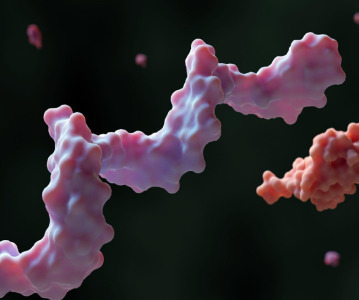Erytech collaborates with Queen’s University to advance product candidate for rare metabolic disorders

The collaboration will leverage the expertise of Queen’s University and Erytech’s ERYCAPS platform technology.
Erytech Pharma has entered into a research collaboration with Queen’s University in Canada to advance the preclinical development of Erytech’s eryminase program specifically for the treatment of arginase-1 deficiency, a rare and severe metabolic disorder related to arginine metabolism. The collaboration will leverage the expertise of Queen’s University and Erytech’s ERYCAPS platform technology with the goal of generating in vivo proof-of-concept data in an arginase-1 deficiency animal model.
Arginase-1 deficiency is a rare, inherited disorder of the urea cycle caused by a mutation in the arginase-1 gene, resulting in the accumulation of toxic levels of the amino acid arginine in the blood. Symptoms generally appear in early infancy and include intellectual disability, non-ambulatory muscle stiffness and seizures. It is a debilitating, progressive disease with very limited treatment options currently available.
The collaboration between Erytech and Queen’s University aims to demonstrate the potential of Erytech’s eryminase to lower arginine in the inducible arginase-1 deficiency mouse model developed by the laboratory of Prof. Colin Funk of Queen’s University. Eryminase, a product candidate being developed by Erytech, consists of an arginine deiminase enzyme encapsulated in red blood cells using Erytech’s proprietary ERYCAPS platform technology. Erytech believes the encapsulation of the therapeutic enzymes in the red blood cells can provide effective, long-acting therapeutic activity with reduced toxicity.
Prof. Colin Funk, Queen’s University, commented: “Arginase-1 deficiency is a severe, rare disorder affecting a biochemical pathway that disposes of toxic ammonia. Normally, our bodies are very efficient at removing any ammonia that accumulates after eating a protein-rich meal. However, in patients with arginase-1 deficiency, the ammonia is 'partially detoxified' leading to a large accumulation of the amino acid arginine in the patient’s blood and brain. Erytech’s product candidate eryrminase aims to reduce the level of arginine in blood and thus, has significant potential to reduce negative consequences of this disorder. We look forward to working with Erytech to advance their preclinical program.”
Dr Alexander Scheer, Chief Scientific Officer of Erytech, added: “This is our second collaboration in the field of rare metabolic diseases that underscores the scope of our platform and its applicability to highly specialized and rare conditions beyond oncology. We are very pleased to enter this collaboration with Queen’s University and look forward to working closely on this important program with Dr Funk who specializes in research related to urea cycle disorders.”
Related News
-
News Google-backed start-up raises US$600 million to support AI drug discovery and design
London-based Isomorphic Labs, an AI-driven drug design and development start-up backed by Google’s AI research lab DeepMind, has raised US$600 million in its first external funding round by Thrive Capital. The funding will provide further power t... -
News AstraZeneca to invest US$2.5 billion in Beijing R&D centre
Amid investigations of former AstraZeneca China head Leon Wang in 2024, AstraZeneca have outlined plans to establish its sixth global strategic R&D centre in China. Their aim is to further advance life sciences in China with major research and manufact... -
News Experimental drug for managing aortic valve stenosis shows promise
The new small molecule drug ataciguat is garnering attention for its potential to manage aortic valve stenosis, which may prevent the need for surgery and significantly improve patient experience. -
News How GLP-1 agonists are reshaping drug delivery innovations
GLP-1 agonist drug products like Ozempic, Wegovy, and Mounjaro have taken the healthcare industry by storm in recent years. Originally conceived as treatment for Type 2 diabetes, the weight-loss effects of these products have taken on unprecedented int... -
News A Day in the Life of a Start-Up Founder and CEO
At CPHI we work to support Start-Up companies in the pharmaceutical industry and recognise the expertise and innovative angles they bring to the field. Through our Start-Up Programme we have gotten to know some of these leaders, and in this Day in the ... -
News Biopharmaceutical manufacturing boost part of new UK government budget
In their national budget announced by the UK Labour Party, biopharmaceutical production and manufacturing are set to receive a significant boost in capital grants through the Life Sciences Innovative Manufacturing Fund (LSIMF). -
News CPHI Podcast Series: The power of proteins in antibody drug development
In the latest episode of the CPHI Podcast Series, Lucy Chard is joined by Thomas Cornell from Abzena to discuss protein engineering for drug design and development. -
News Amgen sues Samsung biologics unit over biosimilar for bone disease
Samsung Bioepis, the biologics unit of Samsung, has been issued a lawsuit brought forth by Amgen over proposed biosimilars of Amgen’s bone drugs Prolia and Xgeva.
Recently Visited
Position your company at the heart of the global Pharma industry with a CPHI Online membership
-
Your products and solutions visible to thousands of visitors within the largest Pharma marketplace
-
Generate high-quality, engaged leads for your business, all year round
-
Promote your business as the industry’s thought-leader by hosting your reports, brochures and videos within your profile
-
Your company’s profile boosted at all participating CPHI events
-
An easy-to-use platform with a detailed dashboard showing your leads and performance







.png)